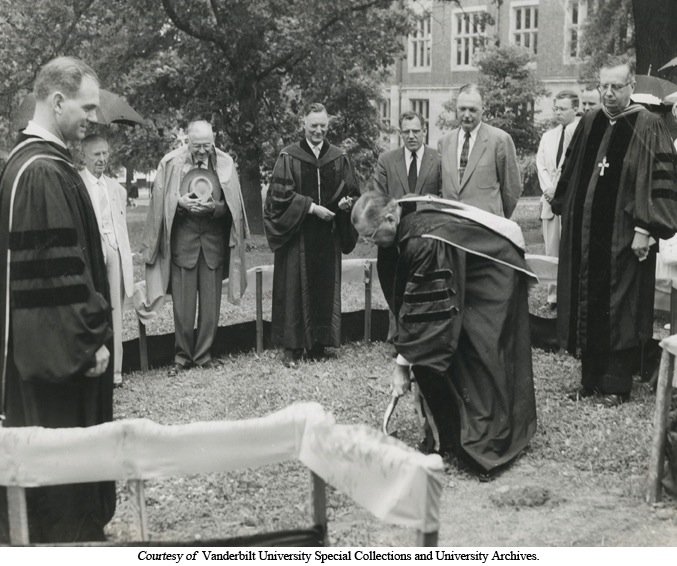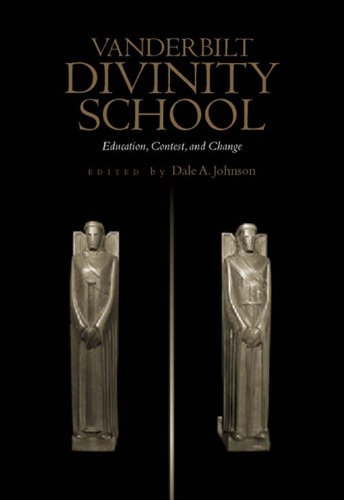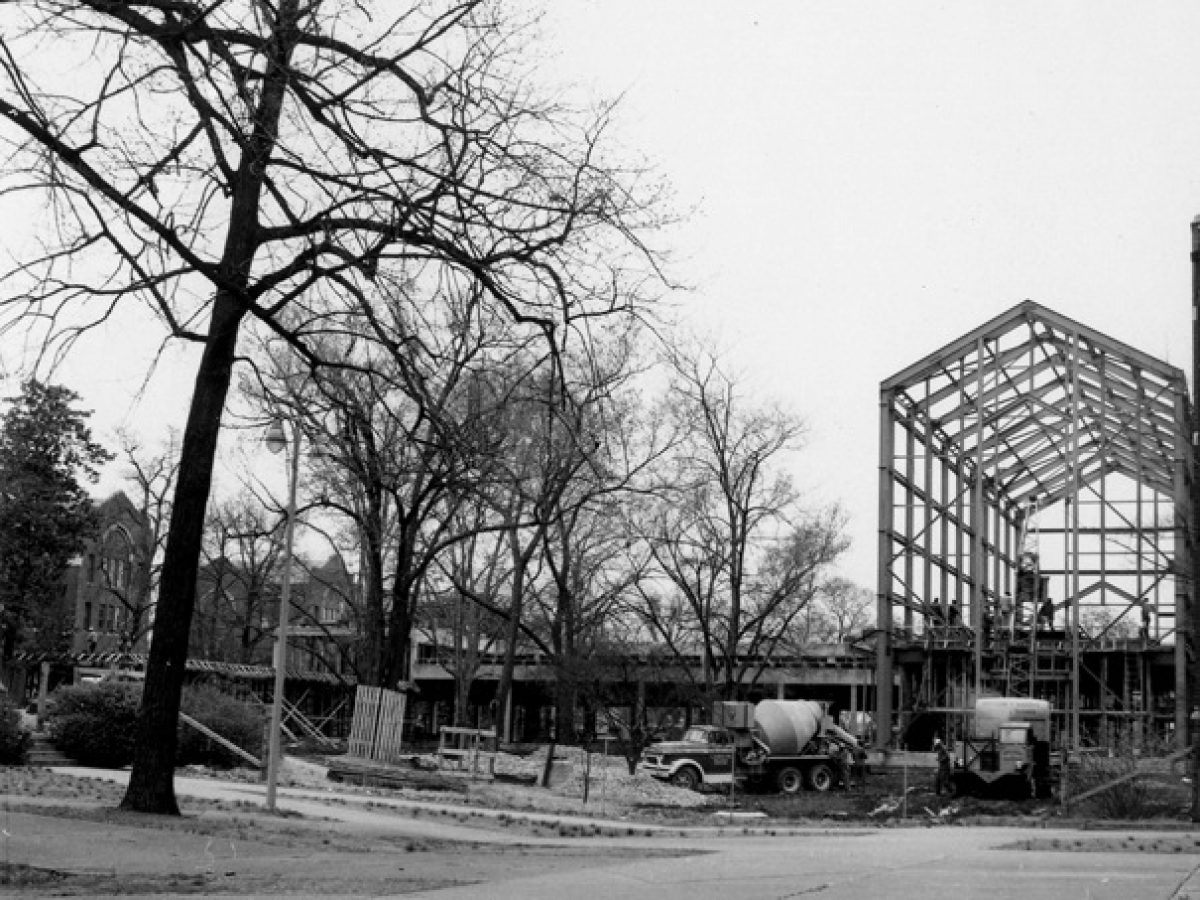History:
The Divinity School began in 1875, following the 1873 founding of the University. It was established as the Biblical Department of Vanderbilt University and from its opening until May 1914 was under the auspices of the Methodist Episcopal Church, South. Since that date it has carried on its work as an ecumenical theological school under direction of the Vanderbilt University Board of Trust.
In 1915, by Board of Trust action, the Biblical Department became the Divinity School, with its own dean and faculty. For more than a century the school has graduated thousands who have carried on their ministries in all parts of this country and throughout the world.

A new phase in the history of the Divinity School began in September 1966 with the moving of the Graduate School of Theology of Oberlin College to Vanderbilt. The growth of the faculty and the increase in financial resources resulting from this merger have made possible a broadening and strengthening of the school's academic programs and greater opportunities for service.
The history of Vanderbilt Divinity School is recounted in a collected volume edited by Professor Emeritus and church historian Dale Johnson, Vanderbilt Divinity School: Education, Contest, and Change.
More Resources About VDS

Vanderbilt Divinity School: Education, Contest, and Change
In this book, the contributors explore the school's history in terms of four main themes:
- Engagement with southern culture, present from the beginnings of the university but taking on special significance in the mid-twentieth century around the issue of race;
- The transition from an institution of the church (Methodist) to an independent and interdenominational school with a liberal Protestant orientation;
- The development of the modern research university, evident in the establishment of a graduate program in religion in addition to its program for the profession of ministry;
- From the 1950s, a growing concern with diversity and inclusivity, in keeping with national and international issues and developments both religious and cultural, which has broadened the school's sense of ecumenism and deepened its commitments to social justice.
Conflict has played an important part in shaping the history of the Vanderbilt Divinity School, from struggles over initial visions to questions of financial support and institutional control, from local debates over academic freedom to national issues of social justice. Especially noteworthy are the transformations the school has undergone since 1960: the "James Lawson affair," where most of the divinity school faculty resigned over the expulsion of an African American graduate student who was organizing local lunch counter sit-ins; the impact of social change on the school since the late 1960s; and the contributions of women and African Americans, including their appointment to the faculty.
Dale A. Johnson was professor emeritus of church history in the Divinity School at Vanderbilt University and author of The Changing Shape of English Nonconformity, 1825-1925.
VDS Purposes and Commitments

As the self-proclaimed “school of the prophets,” we are committed to a practice of radical hospitality. That means opening our doors to a diverse community of scholars, faith leaders, lifelong learners, and changemakers. We are one of the few Research I, university-based, interdenominational divinity schools in the country and we embrace all aspects of that identity. Today, the “school of the prophets” is a place for top-tier research, training, social justice activism, and global community building."
As a school of the prophets, VDS' Purposes and Commitments are informed by values central to Judaism and Christianity and shared with other faiths and humanistic traditions:
"…What does the Lord require of you but to do justice, and to love kindness, and to walk humbly with your God?" (Micah 6:8)
"'You shall love the Lord your God with all your heart, and with all your soul, and with all your mind.' This is the greatest and first commandment. And a second is like it: 'You shall love your neighbor as yourself.'" (Matthew 22:37-39)
Did You Know?
- Vanderbilt University Divinity School is one of only five university-based, interdenominational divinity schools in the U.S., and one of only two located in the South.
- Vanderbilt University Divinity School started as the Biblical Department when Vanderbilt was founded in 1875.
- Vanderbilt University Divinity School was affiliated with the Methodist Episcopal Church South from 1875-1914.
- Vanderbilt University Divinity School got its name in 1956. Previously, the institution was called the School of Religion.
- Vanderbilt University Divinity School offers four degrees, the Master of Divinity (M.Div.), the Master of Theological Studies (M.T.S), the Master of Theology (ThM), and the Doctor of Ministry (D.Min.) in Integrative Chaplaincy.
- Vanderbilt University Divinity School does not offer the M.A. or Ph.D. Those degrees are offered in the Graduate Department of Religion.
- The Divinity School offers dual degree programs with Vanderbilt's Schools of Management, Education and Human Development, Law, Nursing and Medicine.
- The current site of the Vanderbilt University Divinity School is not its first location on campus. The first Divinity building, Wesley Hall, burned to the ground in 1932.
- Before moving to its current site in 1960, the Divinity School was located across 21st Avenue in the current location of Wesley Place garage.
